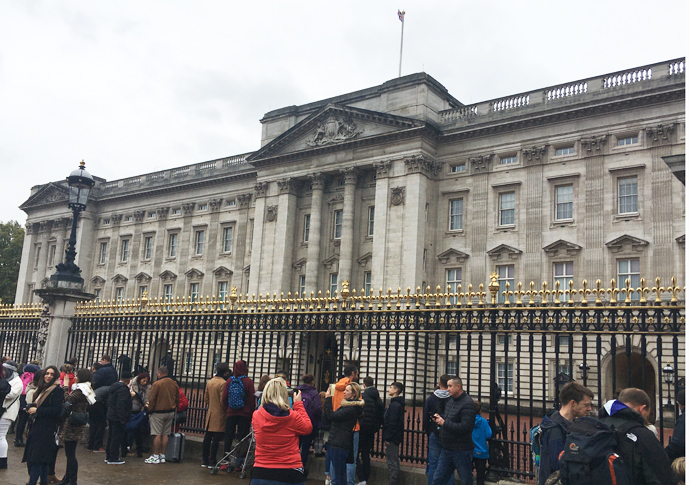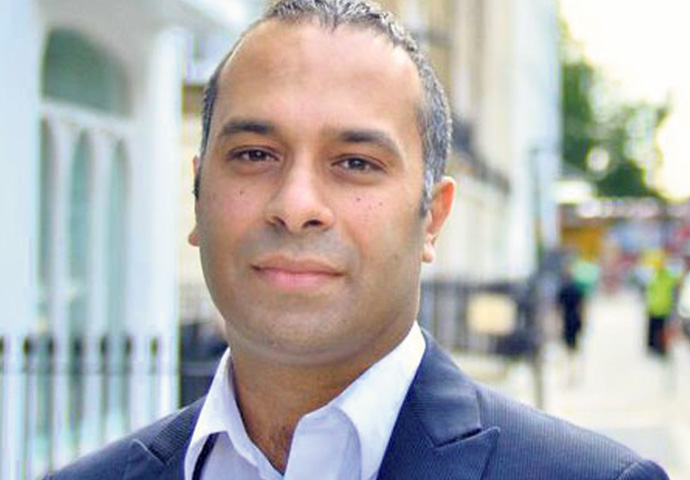Why I also say ‘this is not my King’
FORUM: What starts off as heretical can soon become the orthodoxy, explains lawyer Raj Chada
Friday, 16th September 2022 — By Raj Chada

‘The idea that there are people in public life because of their birth rather than their achievements or views is a relic to a previous age’
IN March 2022, anti-war protesters in Russia were arrested for holding up blank posters; it was widely seen as a symbol of the decay of democracy.
In September 2022 a barrister, Paul Powlesland went to Parliament Square and held a blank piece of paper. An officer attended, and asked for his details.
The officer confirmed that he would arrest Mr Powlesland if he wrote “Not my King” on the piece of paper.
This was not an isolated incident. It follows arrests in Scotland and one in Oxford, where a protester was arrested for shouting “who elected him” during an accession proclamation.
There does not appear to have been any risk of disorder at any of these incidents. People were arrested, or threatened with arrest, for expressing their views about who the head of state should be in our country.
We may enjoy infinitely more freedoms than in Vladimir Putin’s Russia but that latter statement is worthy of a Kremlin proclamation.
Free speech is meant to be the cornerstone of our democracy but it is cast aside, when the state sees fit. There really can be no justification for such police action.
Even if you (and indeed the vast majority of the country) disagree with the protesters’ sentiments, they still should be able to express their views.
What starts off as heretical, can soon become the orthodoxy, a position expressed by many judges in legal cases that protect the right to free speech.
It is important that we can express our views about who our new head of state should be. I will say immediately that the institution of the monarchy is not one that I can sign up for.

Raj Chada
The idea that there are people in public life because of their birth rather than their achievements or views is a relic to a previous age.
The head of state should represent all in the country, but I join with Paul to say that “this is not my King”.
The symbolism of the Crown, its association with empire, imperialism and all that goes with that, means that it is not for me.
Despite the new rules on royal succession introduced by the Coalition government in 2012, it is still impossible for a Roman Catholic to become our head of state. Fusing the head of state with the being the titular head of the Church of England is not tenable in a multicultural meritocracy.
I am, of course, respectful of the Queen’s public service. It is right that the country commemorates her and remembers that service.
I understand that tradition and pageantry have their place and it is part of what it means to live in the UK. I watch that, as somewhat of an outsider, and I know that the vast majority of the population appear to be supportive of the monarchy.
The question, though, is not of the last 70 years but of the next 100 and beyond. It may have been better to have that debate at a different time rather in the immediate aftermath of the Queen’s death. However monarchy, by its very nature, has no stop-gaps.
The Queen is dead. Long Live the King. The “Proclamation of the King” means that there was no debate about the rights and wrongs about our constitutional settlement – it is simply automatic – hence the lone voices that have been raised in protest. That is the true nature of democracy, not the accession of a new king.
• Raj Chada is a leading criminal lawyer, a partner in Hodge Jones & Allen, and heads their Criminal Defence, Financial Crime and Regulatory Department.